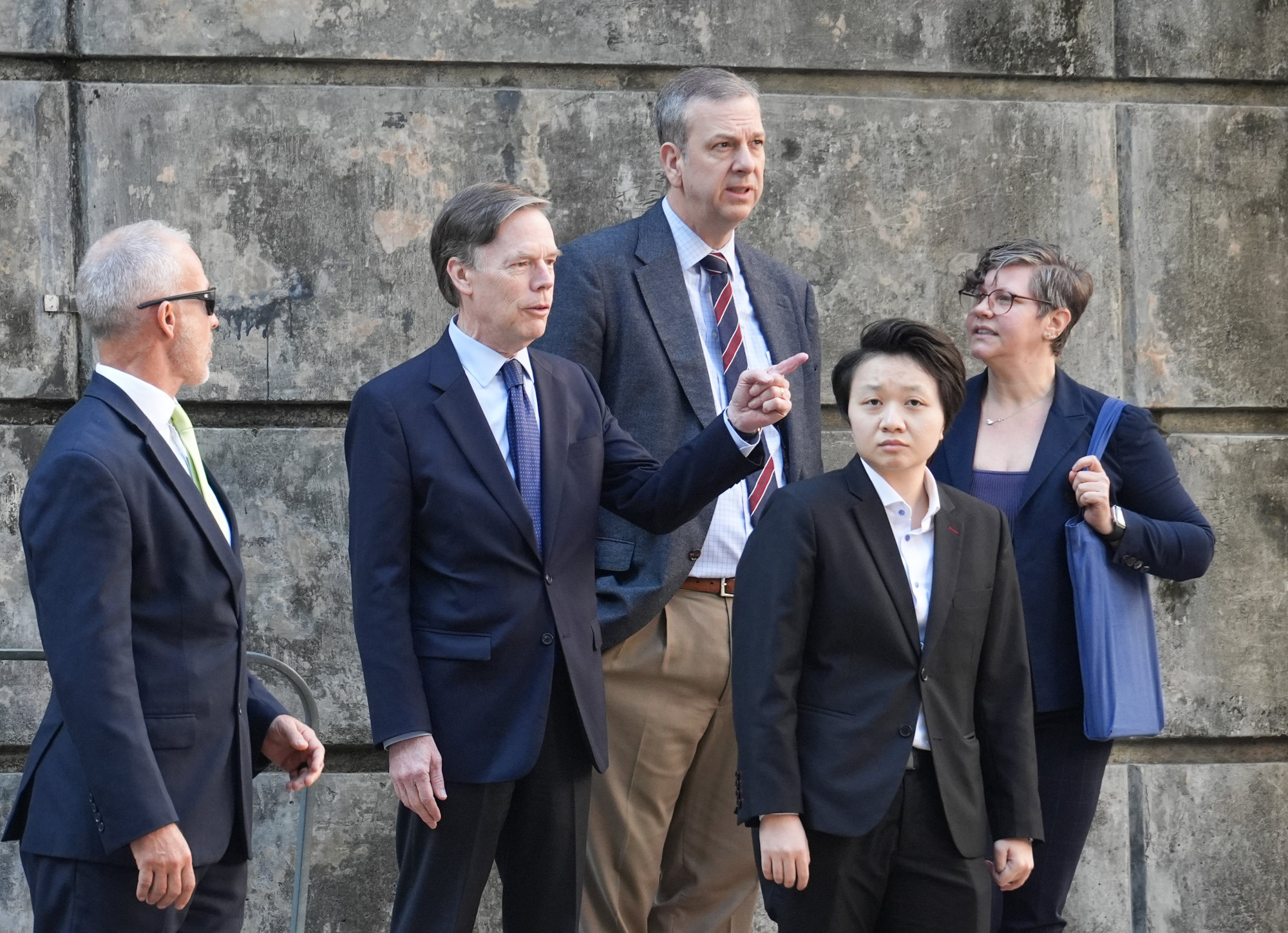US ambassador to China makes 2-day visit to Hong Kong amid efforts by city’s lawmakers to fast-track Article 23 bill
Sources told the Post that the top envoy was there to meet the board members of the press club for an off-the-record, closed-door session. The club has held similar exchanges with local and foreign politicians and newsmakers in such settings in the past.
Burns also visited the University of Chicago’s Hong Kong campus on Mount Davis a day earlier and met some students there, another source said.
A spokeswoman for the US consulate only confirmed Burns’ two-day visit, without sharing any further details about the envoy’s itinerary.
“US Consul General Gregory May is hosting US Ambassador to the PRC Nicholas Burns for meetings in Hong Kong [on Monday and Tuesday],” she said.
“These meetings mark the resumption of routine and long-standing internal policy and management coordination discussions.”

The ambassador’s trip takes place as the Legislative Council works to expedite the roll out of the proposed law, which is required by Article 23 of the Basic Law, the city’s mini-constitution. The bill was gazetted last Friday.
The coming legislation, a domestic counterpart of the Beijing-decreed national security law, targets five new types of offences: treason, insurrection, theft of state secrets and espionage, sabotage endangering national security, and external interference.
Legco’s bills committee has vetted at least 120 out of 181 – almost half – of the bill’s clauses since Friday.
Hong Kong’s Article 23 law: ‘6-month wait for absconder status may be scrapped’
Last month, Washington expressed concerns that the “broad and vague” definitions in the coming law could be used to stamp out dissent and its proposed long-arm jurisdiction might be exercised to “intimidate and restrict” Americans.
The strong stance, issued after the city wrapped up its one-month consultation on the bill, drew a fiery rebuttal from Beijing, which slammed the US for its “political manipulation and hypocritical double standards”.